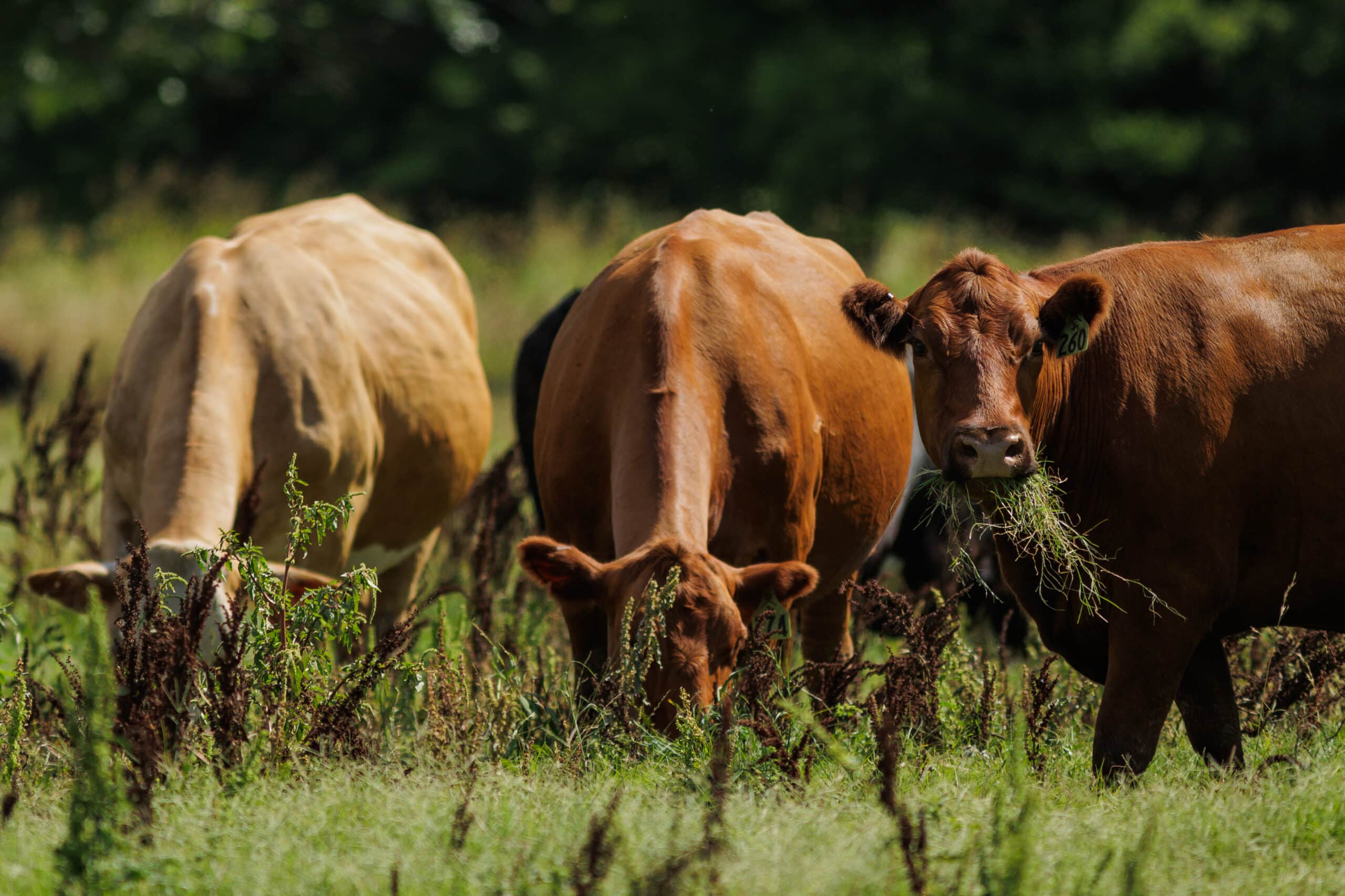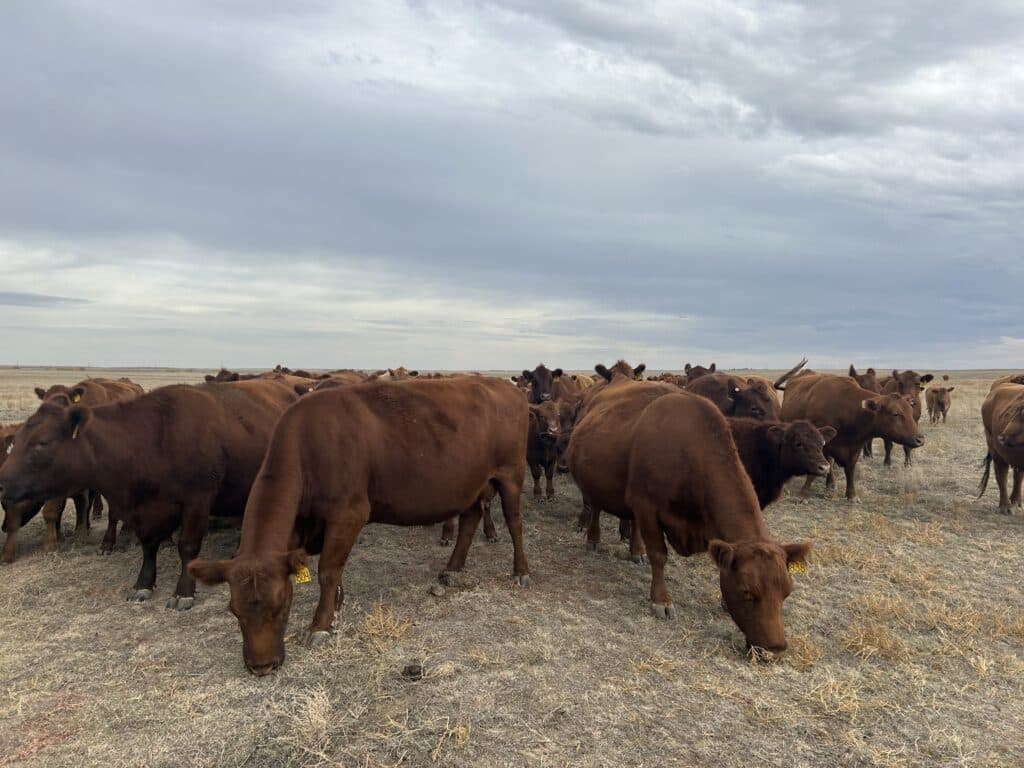The confidence to make the best decisions
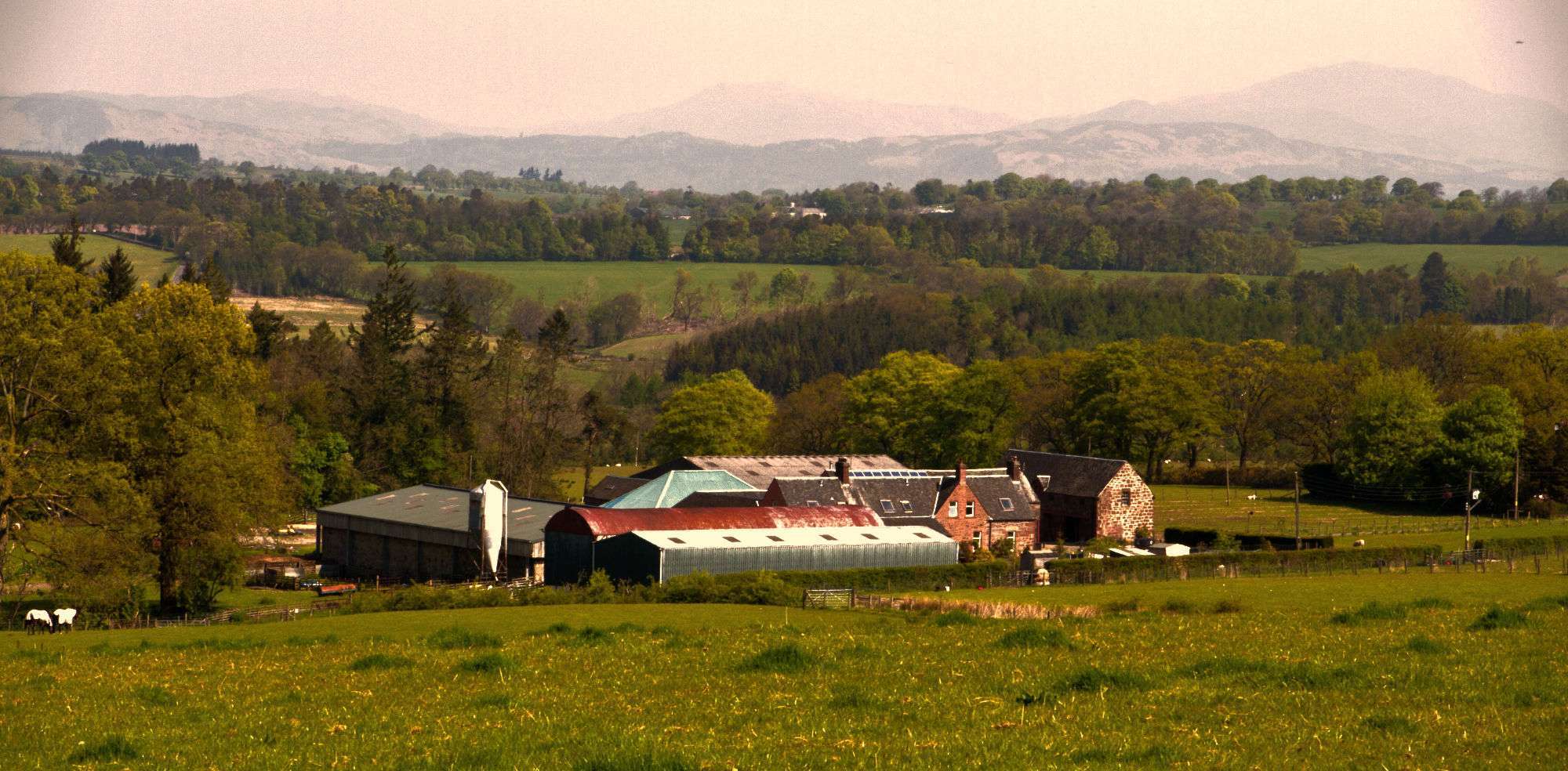
One of AgriWebb’s founders, John Fargher, and Lawrence Martin, a farmer and AgriWebb user, recently spoke to Mark Stephen on Quality Meat Scotland’s podcast. Part of the QMS’s theme of data, John and Lawrence both wanted to talk about what data, insights and running a farm business means to them.
Here we take a look at some of the highlights.
Different farming backgrounds, one common belief.
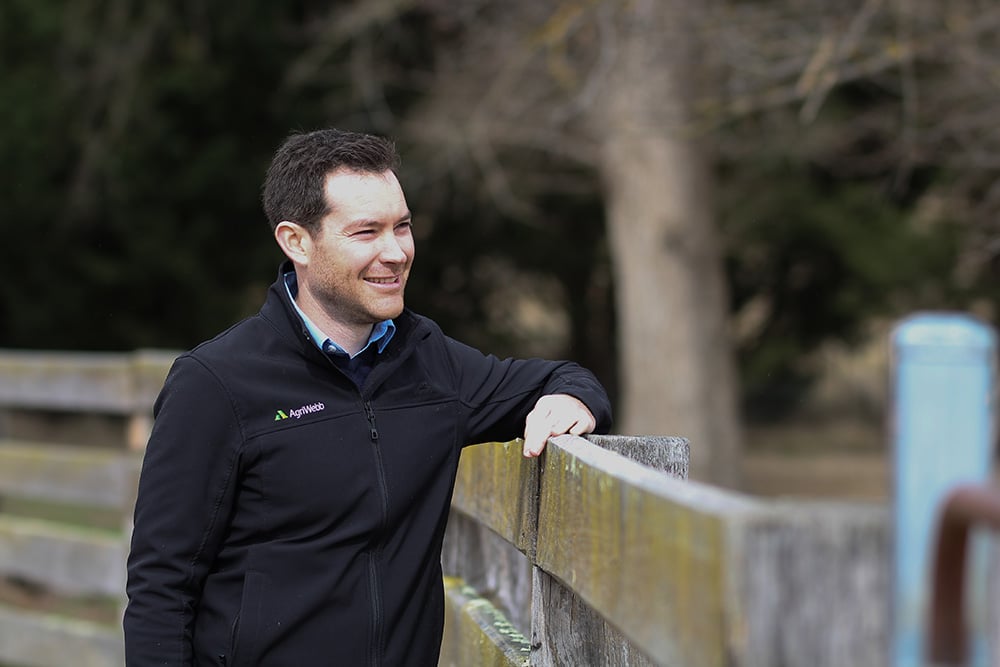
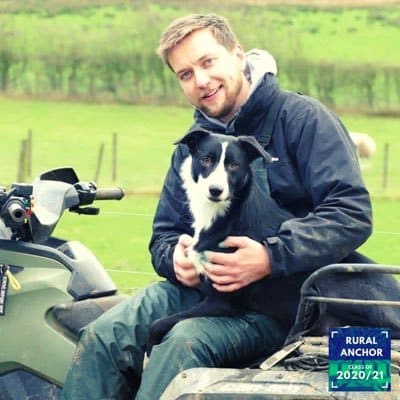
John Fargher
John Fargher comes from five generations of farmers, based in South Australia. Their 400,000 acre farm included 2,500 cattle and 10,000 sheep.
John studied Law and Arts at university and spent time in London, including working for the legal and commercial team of a SaaS company. His background in farming and also in commercialising technology put him in a perfect position to be one of the founders of AgriWebb.
John continues to spend time in the UK, as well as in the US and Australia – all the places where AgriWebb helps farmers. Therefore, he loves spending time with farmers and enjoys understanding both the similar and different challenges that farmers face in the UK compared to where he grew up. In addition, his background in agriculture, as well as in technology, gives him a unique perspective on how we need to move forward as farmers.
Lawrence Martin
Lawrence is the Farm Manager at Carbeth Home Farm in Stirlingshire, Scotland. He became an industry champion at the Lantra Awards after studying Agriculture at Oatridge College in West Lothian. Lawrence champions helping people get into Agriculture, not having come from a farming background himself. He has also worked as a farm contractor and a shepherd. Now, Lawrence has a particular passion for technology and using it to drive sustainable and efficient business practices within the livestock industry.
And Carbeth Home Farm has been continuously innovating the way it operates the business and how using data to make decisions is one way they have taken some big steps to working more efficiently. It aims to ensure Scotland creates a food system that is much environmentally friendly and financially sustainable.
Why did we create AgriWebb?
The frustration John experienced when it comes to operations was not being able to work as efficiently as possible. One of the motivating factors to create AgriWebb was to help farmers easily do what they do from a practical standpoint. And then translate that into something that offers insights into the business side.
The confidence to make hard decisions.
Lawrence has been using AgriWebb for a few years and has really seen the difference it can make to transform from pen and paper: from grabbing your notepad out of your shirt pocket to reaching for your phone. For him, data is imperative, ‘to understand the efficiency of every animal we have on the farm’. That efficiency enables him to be more subjective about which animals he keeps and how he manages the livestock.
Every single animal needs to perform at its highest.
Lawrence focuses on performance and profitability to manage the farm: ‘Every single animal needs to perform at its highest. And we need to ensure that the animals that we keep are doing just that’. Therefore, using that mindset, 150 out of 350 ewes were culled as they were not productive. Lawrence identified they were not positively contributing to the profitability or the future of the farm and took the difficult decision to lose 42% of their flock. ‘The confidence [to make hard decisions] is exactly what AgriWebb gives you. It’s not just an instinct or a feeling. It tells you that this animal is not right for our system’.
Using data and insights to understand what is really happening on-farm, Lawrence, and farm owner, Daye Tucker, were able to take clear business decisions that have created really positive outcomes. Lawrence is sure that it wouldn’t be possible to piece together animal performance from bits of paper to achieve the same clarity.
The importance of having a business management programme for your farm.
The decision to start using a farm management system at Carbeth has really changed the way Lawrence looks at farming. For him, understanding the cost of every treatment, jag and meal per animal is fundamental. ‘It’s not just [the animal’s] prolificacy, but to see if its efficiency matches its cost to produce it’.
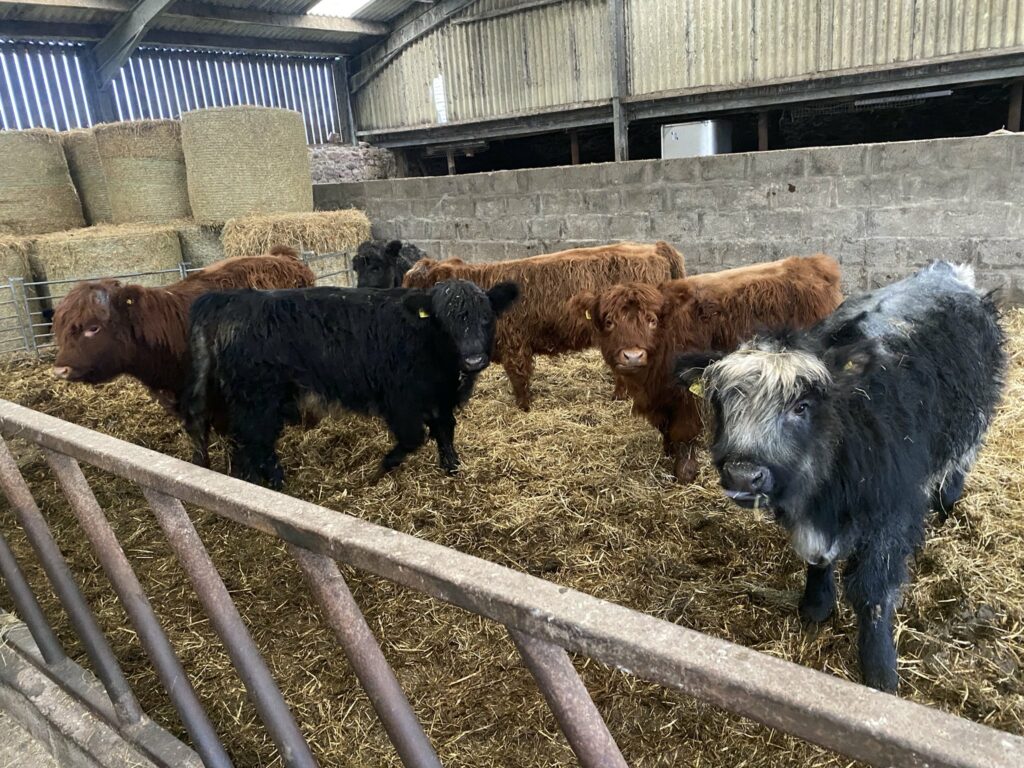
Farmers need to stop running a farm and start running a business.
One of the biggest frustrations John has, that comes from his farming background, as well as seeing others across the world, is being better at understanding costs.
That means both inputs and outputs. ‘Talking to farmers at various events, it’s clear even large operators are only just getting their fingers on the pulse of where their costs are.’
And without that, how can farmers can find operational efficiencies? Whilst we can look at the balance sheet, but a balance sheet alone doesn’t tell you where the opportunities to improve may be.
‘We need to shift the mindset and shift the industry into running these operations as a business’, says John. Nevertheless, it isn’t a criticism of farmers. But with increasing challenges in the world and in the industry around food and environmental sustainability, John feels it is inevitable. Farmers have the chance to be part of of that change and ensure a legacy for farming.
But what about the future for farming?
John believes that there is definitely a future for farming. And farmers really are the custodians of the land they manage. And despite the ways farmers feel they are portrayed in the media sometimes, John says it’s about something else. ‘It’s not that farmers aren’t being good custodians of the land. But, the focus and mindset is not managing and running a business’.
So, what do we need to change? After all, some of us have been farming the same way for generations.
John suggests:
‘We have some macro, economical and environmental challenges ahead of us. As farmers, we need to produce more. We need to be more efficient, using less land… With an eye on sustainability. We need to focus on our high performers’.
He continues, ‘It’s one of the challenges we have, but also the opportunity. And that’s what excites me – we have a huge amount of upside in our industry’.
Using Lawrence’s story as an example, John asks how that might have an impact at a global scale. ‘By removing the under performers, the net result of that, from a macro-perspective, is pretty outstanding’.
And so, it isn’t about not farming, or not having livestock, but managing them in a way that is really efficient. Everyone wins.
The future at Carbeth Farm
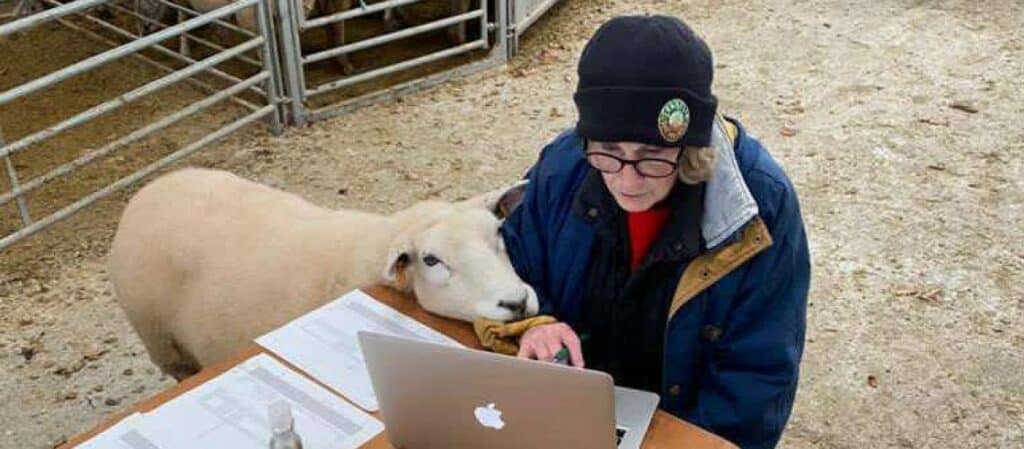
Lawrence credits using technology to manage their farm more efficiently. Indeed, they recently invested in a new tractor on the farm as a result of having an improved bottom line. So, that opportunity to decrease inefficiencies, for Lawrence, means more opportunity to buy machinery that pushes those efficiencies even further.
Listen to the podcast in full here and find out more about Quality Meat Scotland here.
To find out more about how AgriWebb can help with making you more efficient, click here or watch a demo here.
_______________________
You can follow Lawrence on Twitter
See Lawrence’s blog for AgriWebb here.
